Why Berlin is the favorite city of Chinese dissidents
Tuesday, July 10, 2018, marked a new beginning of Liu Xia’s life, just days shy of the first anniversary of her husband’s death in Chinese custody. Sporting a loose cardigan, the bespectacled 57-year-old artist, poet, and widow of late Nobel Peace Prize laureate Liu Xiaobo landed at Berlin’s Tegel Airport late yesterday afternoon—free after nearly eight years of house arrest.
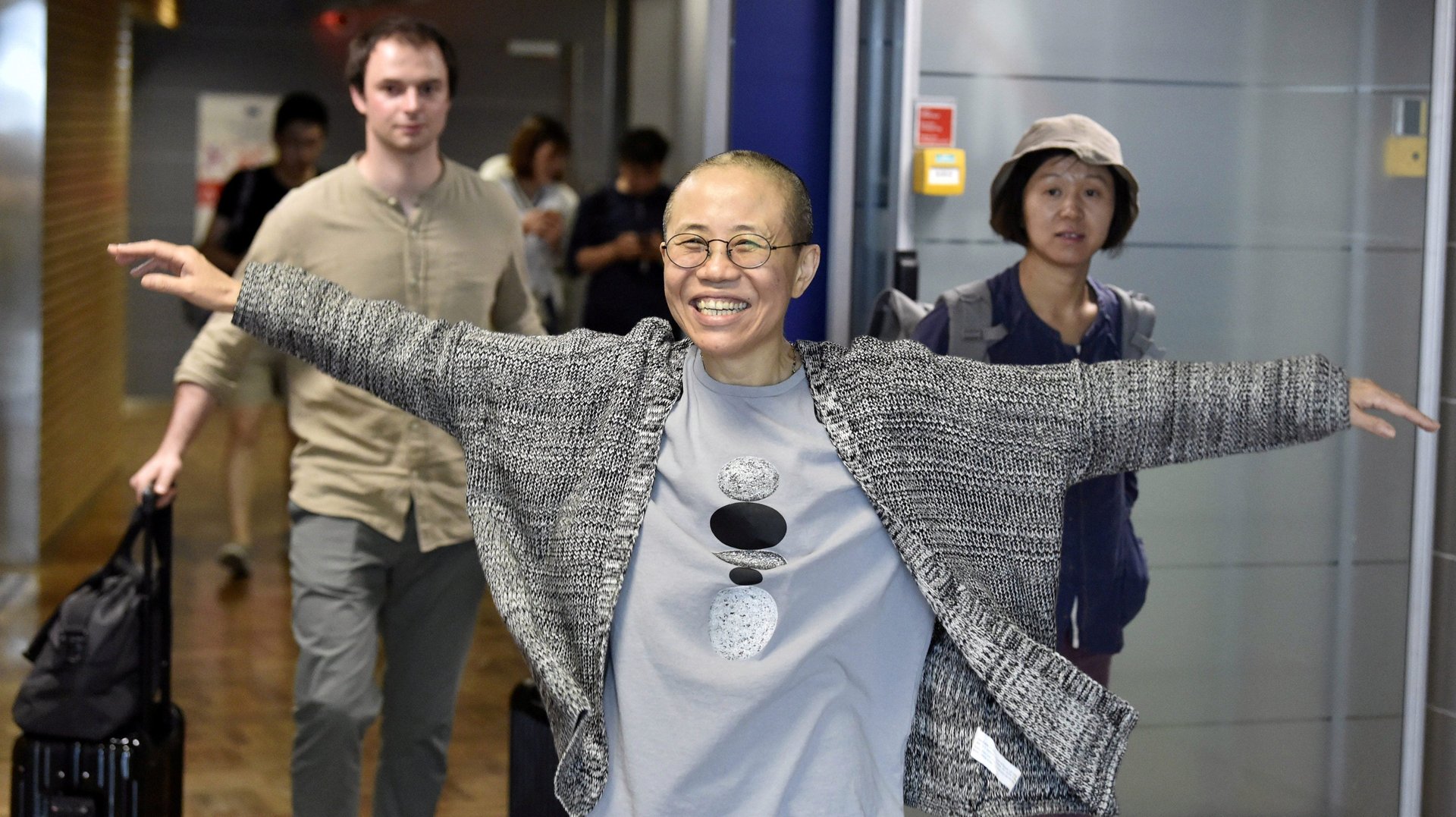

Tuesday, July 10, 2018, marked a new beginning of Liu Xia’s life, just days shy of the first anniversary of her husband’s death in Chinese custody. Sporting a loose cardigan, the bespectacled 57-year-old artist, poet, and widow of late Nobel Peace Prize laureate Liu Xiaobo landed at Berlin’s Tegel Airport late yesterday afternoon—free after nearly eight years of house arrest.
Liu Xia is following in the footsteps of several other exiled Chinese dissidents who made Berlin their adopted home in recent years. The choice of Berlin, whether for a temporary or permanent stay, is not accidental. Compared with many other Western countries, Germany has been the most consistently vocal about China’s human rights issues, even as economic relations between the two countries have deepened. And with its vibrant cultural scene, the cosmopolitan German capital offers a welcoming environment for Chinese dissidents, who are often from the world of arts and letters themselves.
“Many Chinese dissidents are artists, authors, and thinkers. Here in Berlin, they can find like-minded people and a support network. There are venues to organize events. Medical treatment and support from political institutions are also available,” said Kristin Shi-Kupfer, director of the research on public policy and society at the Mercator Institute for China Studies (MERICS) in Berlin.
That can make the experience of exile less lonely. “She is not alone. There are Chinese artists living here willing to offer support. Being part of the Chinese artists’ community here in Berlin will be very helpful for her new life at the beginning,” said Wolfgang Buettner, advocacy officer for Human Rights Watch Berlin.
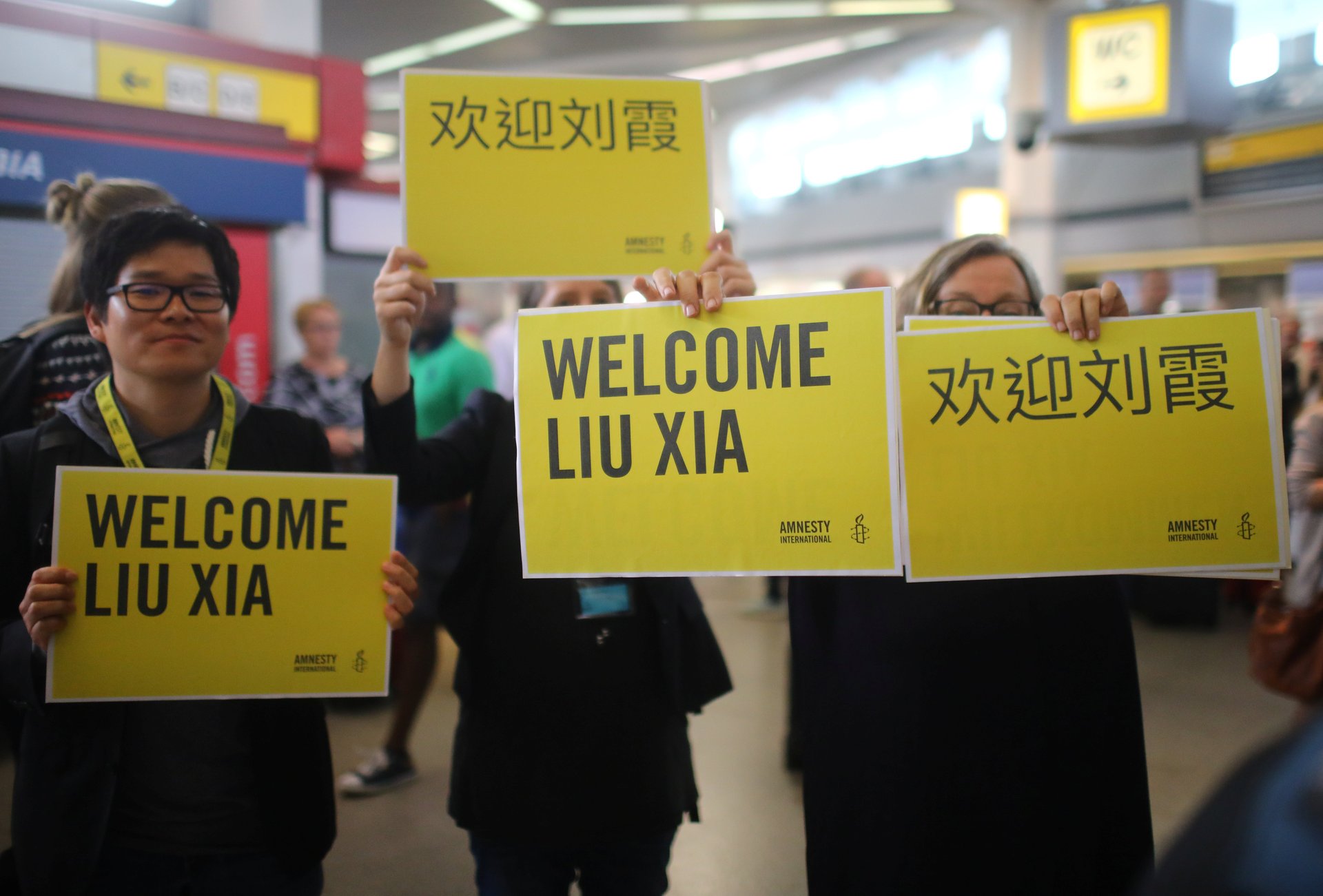
Setting Liu Xia free
The news of the release of Liu, who has been under house arrest since her late husband won the Nobel Peace Prize in 2010—a year into his imprisonment for helping to write a 2008 manifesto urging China to reform its ruling style and respect human rights—emerged on Tuesday morning. It was later confirmed by China’s foreign ministry, which said that Liu had traveled to Germany for medical treatment. Hours later, she was spotted transiting in Helsinki on her way to Berlin, where Chinese premier Li Keqiang had a meeting with German chancellor Angela Merkel on Monday.
China and Germany signed nearly $24 billion in deals and renewed their commitment to a multilateral trade system, as the United States takes an increasingly protectionist approach, including with allies in Europe and elsewhere. The US and China are already in the midst of a trade war, with $34 billion in goods from each side subject to a 25% duty, and the US on Tuesday announcing a new list of 6,000 items equivalent to some $200 billion in Chinese products that could face an additional 10% tariff.
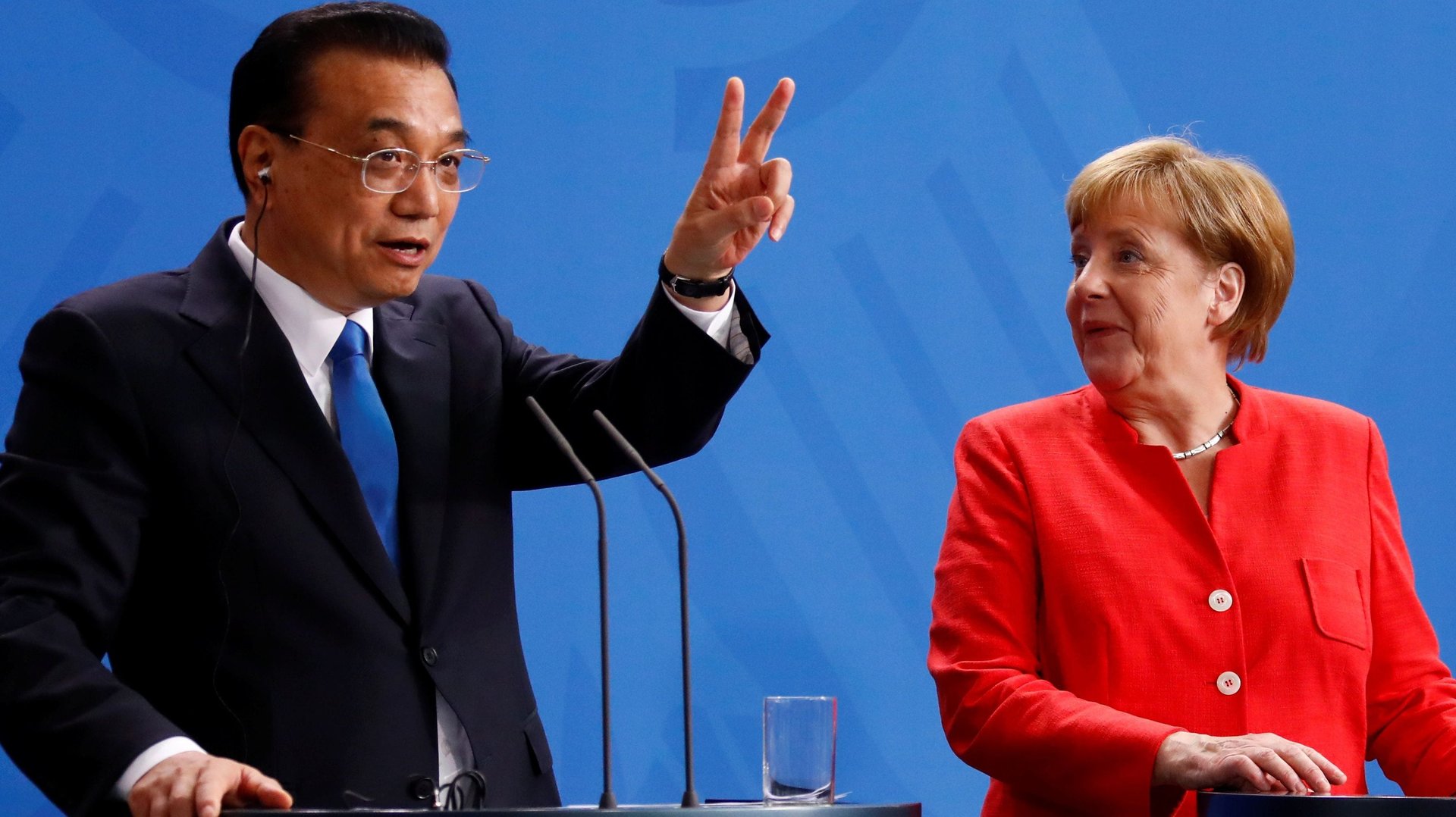
Shi-Kupfer said the release of Liu was significant in the context of the international political and economic woes among China, Germany, and the US. Given the troublesome relations with the US, China needs to put effort into winning over Germany—already a key recipient of its investment—as a partner and supporter in Europe. Allowing Liu to travel to Germany was a concession from a China that wants to be recognized as a responsible global player, she said.
“[It] looks like a gesture of goodwill from the Chinese government to Angela Merkel because she has been very involved in pressing for the Liu’s release,” said Shi-Kupfer.
As other countries have muted their human rights demands of China, Germany hasn’t shied away from the issue. Concern groups in Germany and politicians have been vocal on that front, said HRW’s Buettner. During her visit to China at the end of May, Merkel met the wives of two detained Chinese human rights lawyers who were under house arrest and discussed human rights with premier Li in Beijing, a rare move for a foreign head of state.
According to a friend of Liu’s, the German ambassador to China accompanied her on her journey to Berlin.
Ich bin Berliner
Chinese author and political dissident Ma Jian, who together with his books have been banished from China since 2011, has been living in London but has a soft spot for Berlin. He spent time in the German capital in 2017 as a visiting scholar and admires the political consciousness among the people there, he told Deutsche Welle:
“When you walk down the street, you come across ‘Stolpersteine’ [Stumbling Stones] that recall people who were persecuted by the Nazis. Also, all across the city, you run into references to and memorials of the East-West history and division of the city and the country.”
After World War II, the German capital was divided until 1989, when the Berlin Wall came down. Since the reunification of Germany, Berlin has been a reminder of history’s painful lessons, which have shaped the country’s approach to those seeking refuge. Most notably, in 2015, when refugees from Syria, Iraq, and elsewhere arrived in Europe, Germany pledged to take in a million of them. More than 10 million foreigners were recorded living in the country in 2016.
Berlin, in addition to taking in refugees, is particularly attractive for artists and intellectuals. Foreign artists can apply for a special residency permit to live and work in Berlin, where the living costs are relatively low compared to other major world cities and art hubs.
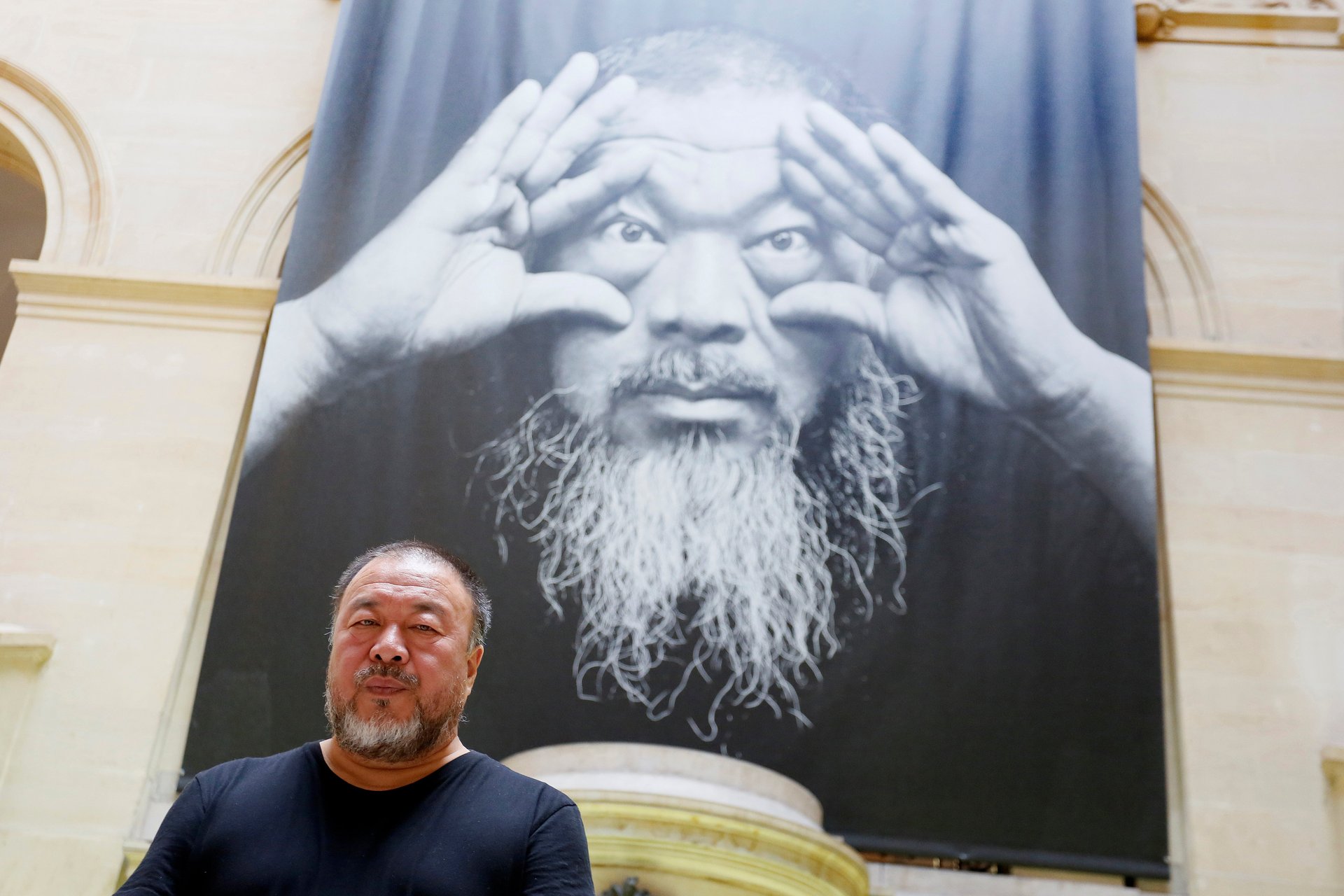
Ai Weiwei, the world’s most famous Chinese artist-activist, moved to Berlin in 2015, after being monitored for years. In his case, too, lobbying from Germany helped make his departure from China possible. Upon arriving the German capital, Ai set up his studios in the Pfefferberg area and took up a visiting professorship (link in German) at the Universität der Künste Berlin.
Although Ai said in May he plans to leave Berlin (link in German) after the visiting professorship expires, he expressed his gratitude toward the city for giving him his first exhibition in the country in 2001 and supporting him during his detention in China. He was detained for three months in 2011 for being an outspoken critic of Beijing, particularly on the death of schoolchildren in 2008 Sichuan earthquake. When Liu Xiaobo died in 2017, Ai hailed him as a symbol of China’s human rights and democratic movements.
It’s not the first time Chinese artists have flocked to Berlin. In the 1920s, the city was also home to a Chinese art scene, with luminaries like painter Xu Beihong, considered a master of Chinese modern art, spending some time there. In recent times, artists from China started to make their presence felt in the city about a decade ago (paywall). Other artists such as Ma Yongfeng and aaajiao from mainland China and Isaac Chong Wai from Hong Kong are among those who call Berlin their new home.
Author Zhou Qing, who was given to a two-year prison sentence in 1989 for being involved in the Tiananmen protests, is also living in Berlin.
But the city isn’t just a magnet for exiled Chinese artists. A number of internationally renowned artists have chosen the city as their base, among them Tomás Saraceno from Argentina, Haegue Yang from South Korea, and Chiharu Shiota from Japan. It is also home to many museums, independent art spaces, and edgy commercial galleries, weaving a promising support network for artists.
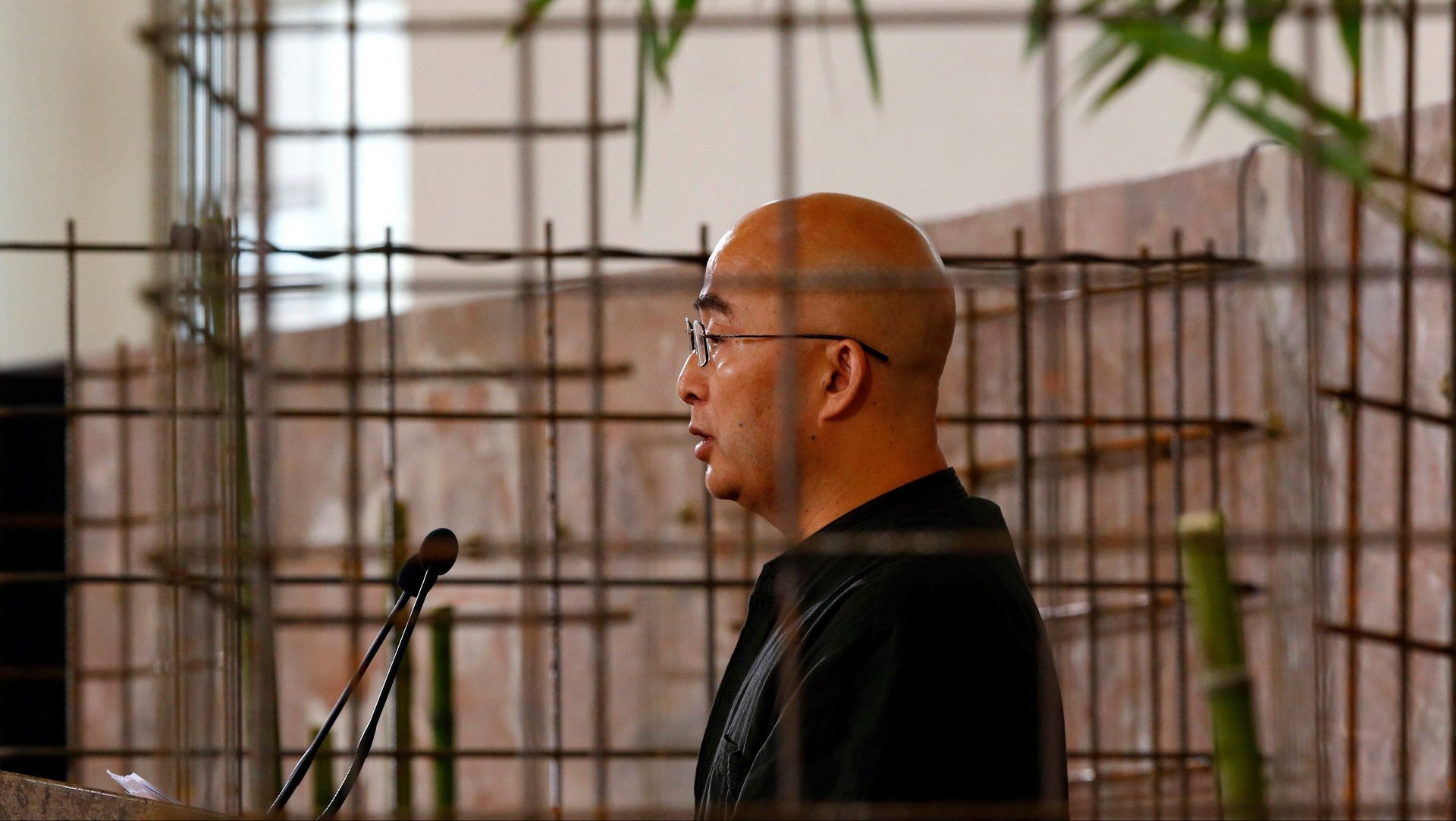
Support for Liu Xia in Berlin
Liao Yiwu, exiled poet, author, and long-time friend of Liu Xiaobo and Liu Xia, has been a key figure in championing for the release of Liu Xia. Liao was imprisoned in China between 1990 and 1994 for composing the poem “Massacre,” dedicated to the 1989 Tiananmen Square demonstrations. He’s been living in Berlin since 2011 (link in German).
In May, Liao revealed Liu Xia told him on the phone that she was “ready to die at home” if she could not leave China. Upon receiving the news about the release of Liu Xia, Liao shared his excitement on Twitter, writing “Ich bin so so so happy!”
Liao is expected to attend Friday evening’s memorial in Berlin’s Gethsemane church to commemorate the first anniversary of Liu Xiaobo’s death. Other key cultural figures who campaigned for Liu Xia’s release will be at the event, headed by pastor Roland Kühne, who since 2010 has organized protests on behalf of Liu Xiaobo outside the Chinese embassy in Germany.
Expected at the event are German poet and Nobel literature laureate Herta Müller, a key figure behind Liu Xiaobo’s peace prize nomination; singer-songwriter Karl Wolf Biermann; Tienchi Martin-Liao, editor of Liu Xiaobo’s works and head of the unofficial Chinese PEN writers association; and American author and Pulitzer Prize winner Ian Johnson. Will Liu Xia be present?
Liao said on Twitter after his reunion with Liu that she is still weak despite her good spirits. “Let us wait for a little. Perhaps she can come to Gethsemane church on July 13.”
Meanwhile, just a day after releasing Liu, China today sentenced Qin Yongmin, a longtime pro-democracy campaigner, to 13 years in prison on subversion charges.